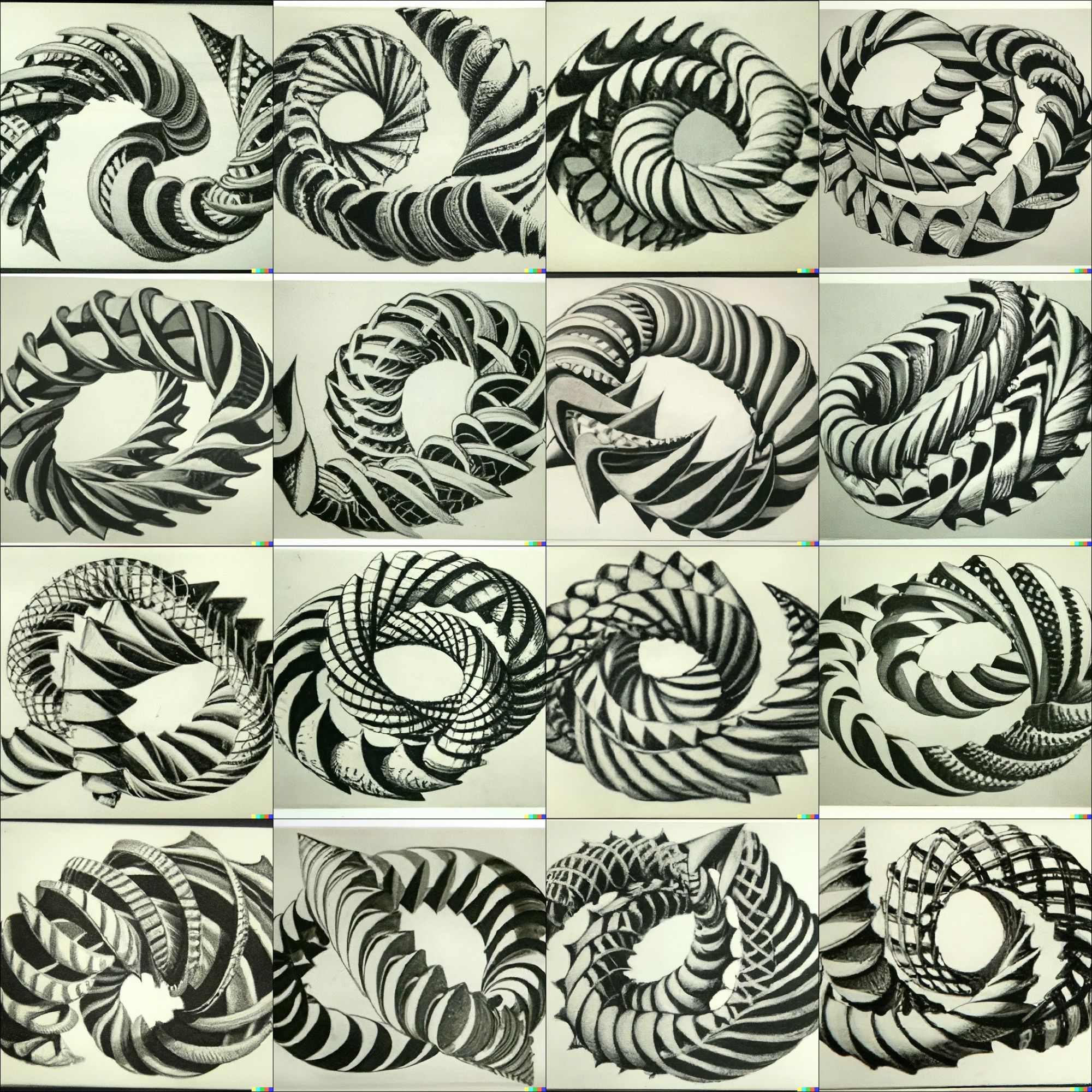On March 6th, 2022, OpenAI released DALL-E 2: their "new AI system that can create realistic images and art from a description in natural language".
I don't say this lightly: DALL-E 2 is not just on-par with human artists. It is definitively better than humans in almost every sense of the word.
The model has access to hundreds of thousands of distinct art styles, has a keen understanding of context, and can create incredible works in under fifteen seconds that would have otherwise taken a human days or weeks.

The displacement of human artists
This is not an exaggeration. Nor am I being hyperbolic. Those of us that work in the art & design industry are about to feel a huge squeeze. This should sound the alarm for the vast majority of current artists to start looking for new work, because if you do commissions, business designs, illustrations - hell, even animations - your value in the marketplace is about to plummet.

There won't be any 'big moments', because automation doesn't displace humans all at once. It's slow, and involves a multitude of factors: you'll face a steady decrease in pay, an increase in expected output, and poorer working conditions as the next few years wear on. The same happened to factory workers during the industrial revolution, and every automated industry since.

Whatever your specific sub denomination of art, the end result will be the same. If you don't prepare yourself with something new to do to earn income, artificial intelligence (for better or for worse) will make that decision for you.
Orders of magnitude
Progress in artificial intelligence is not linear. Five years ago, AI was struggling with 64 x 64 line art. Now, it's capable of producing art & design quality that ninety nine percent of humans will never be able to achieve in their lifetimes.
Understand: the difference in progress between one year ago and one year from now should not be thought of as two years of expected scientific growth. It's more like ten. When predicting the future, every estimate you make needs to include a big exponential factor; the same way we treat compound interest.

But instead of interest on an asset, this exponential factor means higher interest on technology growth as a whole. And better technology growth leads to faster interest on assets, which has a doubly compounding effect if we're talking pure monetary value. The result? There will simply be no place for human artists, aside from maybe 'artisan' markets that are treated the same way we treat antiques today.
Technical quality
In comparison with its forbears, DALL-E 2 understands lighting, composition, shade, forms, and stylistic expression. It's capable of every style you can think of, and can combine different styles in unique and fascinating ways. Photorealism is child's play.

If the creators so wished, it would have been able to produce a near-infinite variety of human faces and forms in virtually every configuration. But OpenAI explicitly removed human faces from the training set to minimize DALL-E's usage in information warfare, like what's happening in the Russia-Ukraine conflict today. If anything, that should give you an indication as to its power.
The future of... everything
Art is not the only industry soon to be majorly displaced. All knowledge-based industries are either already feeling pressure, or soon will be. Counterintuitively, this means programming, writing, media, and design are the first ones to be completely replaced.

Robotics generally lags significantly behind the development of knowledge-based AI models. Training an artificial intelligence on the sum aggregate of humanity's programming projects is far easier than trying to get a robot to fix a door handle. Code is single-modality text that can be downloaded and sorted (simple), whereas fixing a door handle forces you to deal with position, physics, the passage of time, and so on (complex).

Human meaning
How will we find meaning in a world where artificial intelligence does everything better than us - especially traditionally human domains like creativity, art, and storytelling?
What place will our work have in a future where human economic productivity is dwarfed by AI on every front? Will we even have an economy, in the currently-recognizable sense of the word?
Whether now or over the next few years, all of us will have to attempt to answer the aforementioned questions. Art is simply a microcosm of what is to come: let's hope society sees the writing on the wall.






